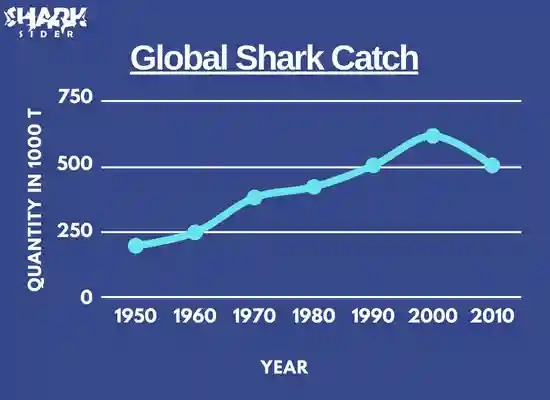Shark finning, the practice of removing a shark’s fins for culinary use, has a long and dark history. The primary use of the harvested shark fins is a traditional soup, favored in Chinese culture as a highly demanded delicacy.
However, over centuries of shark finning becoming an increasingly common occurrence, the shark species that are mutilated in the process of making this dish are thinning out in numbers, which could and eventually will result in their extinction.

Not only is the process unspeakably violent and cruel, but it also poses a number of large-scale ecological threats, as biodiversity is a crucial part of a healthy and functional environment. Though many people are quick to understand the reality and consequences of shark finning, the fact that it has taken place for many generations makes it difficult for some others to understand why it must be entirely halted. Cultural heritage is important, but when attention is drawn to the past and future of the shark fin trade, this particular tradition should be an easy and sensible one to permanently discontinue.
Ancient Chinese History Of Shark Fin Soup
Some Chinese lore would suggest that the origin of shark fin soup dates back to the Sung Dynasty around the 10th Century. The story describes an emperor who used shark fin soup as a means of exhibiting his power and wealth. He aimed to provide a dish that proved these things as well as generosity towards his banquet guests in serving such a rare delicacy. Historically speaking, the recorded consumption goes back as far as the Ming Dynasty, but with an almost identical story as to why shark fins were used, and in similar quantities. For a long time, the collecting and serving of shark fins was only for the extremely wealthy, if not ruling class, as a means of publicizing affluence and a dominance over nature.
Modern Chinese History Of Shark Fin Soup
By the early 19th Century, living conditions in China had begun to improve across the board, along with technological advancements. With these developments, the popularity and availability of shark fin soup spiked, and the acquisition of shark fins for cooking purposes became a priority of the upper and lower classes alike. Between then and now, the demand for shark fin soup has only increased, with ultimate motivation behind it remaining essentially the same. More than the soup is considered to be delicious, it is considered to be a status symbol, and the public illusion of wealth and power has proven to be more important than the moral and ethical ramifications of shark finning to many people. From 2004 to 2011, for instance, demand for shark fins was increasing annually by a rate of 5%.
A Truly Brutal Trade
Understanding the history and demand of shark fin consumption is key in addressing the issue, but it’s also important to emphasize how brutal the practice of harvesting fins really is. For the early part of the soup’s history, the entire shark was caught in the process of bringing the meal to the table. After a period of increased demand and the introduction of large-scale commercial fishing, however, humanely fishing for an entire shark did not make financial sense to fishermen.
The practice of shark finning at sea involves capturing a shark, cruelly severing its fins, and then throwing it back into the ocean, leaving it helpless to asphyxiate and slowly die. The process is horrific and surprisingly labored, considering the entire shark could have been eaten, but the reason for the inhumane execution of shark finning is sheer volume. The fins are the most financially valuable part of the shark, and accumulating and transporting as many as possible is the sole motivation of these fishermen. The result is an estimated 26-73 million sharks that are harvested for fins every year, which equates to 26-73 million sharks that are mutilated and thrown back into the ocean, incapable of swimming or maintaining vital functions. All different species of sharks are impacted by shark finning.
The gruesome reality extends beyond the horrors forced upon each individual shark. Some shark populations have dropped as low as 80% as a result of overfishing. Such massive changes in numbers can have a huge and irreversible ripple effect on an ecosystem. When biodiversity is altered, there is no telling how many negative consequences that imbalance can yield. It is unfathomably irresponsible to subject an entire planet to those consequences in the name of food and money, especially when that food is not at all required to maintain good health.

The Myths Of Shark Fin Soup
The myth proliferates throughout Chinese culture and tradition that shark fin soup provides some medicinal benefits. Scientific research has proven those claims to be unfounded and untrue. In fact, shark fin soup is poorer in vitamin content than vegetable soup, and any vitamins shark fins do contain are abundantly available in most other foods. Another myth is that shark fin can prevent cancer, which there is no scientific evidence to prove. Contrarily, shark meat actually contains high levels of mercury, a chemical that is more likely to cause cancer than prevent it. Finally, there is some scientific research that solidly suggests that the excessive consumption of shark fin can cause sterility in men, a finding that swiftly quiets the claim that shark soup can increase sexual potency.
Awareness Is Key To Ending Shark Finning
With all of this information together, it becomes clear that shark finning is not only abhorrent in its cruelty, but its product is also not safe for any individual, or for the environment. Raising awareness is a huge factor in ending the practice forever. As people became more aware in China, the levels of consumption actually did decrease, beginning in the early 2010s. The popularity of shark fin soup has dropped substantially in China, and Hong Kong is following a bit more slowly. While that progress is wonderful, the practice of shark finning should be completely obliterated as soon as possible. Legislators around the world are working hard to write and implement laws banning the trade of shark fins, but as long as there is still demand, the trade will still exist.
Hopefully, with increased awareness, the consumption of shark fins will end, and all the different species of sharks, can be healthy and thriving once more.
